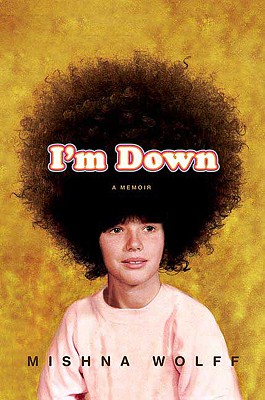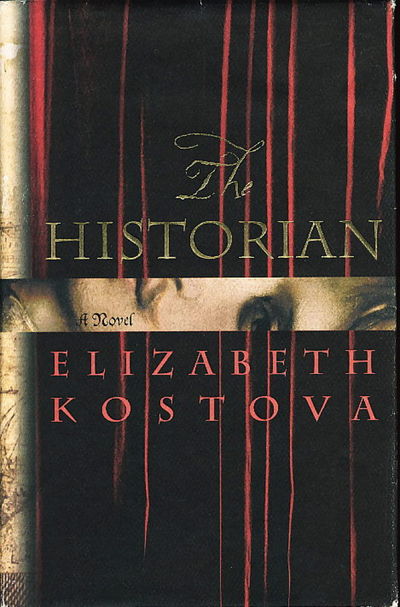I'm Down, Mishna Wolff.
Acquired: in a guilty haze, July 2009. Read in 3 days.

I wasn't supposed to buy this book yet. I was supposed to wait until I'd finished at least a few more of my own unread dust-catchers. I
definitely wasn't supposed to pick it up, with guilty fingers, at the Barnes & Noble where I was looking for LSAT study materials. Of all places! Tsk, tsk, self-control.
This book came on my radar via Diesel Bookstore's newsletter. Peep what they said:
It's a rare book that can deal with race in America in a way that's as outrageously funny as it is heartbreaking. But I'm Down does just that. Born a self-described honky into south Seattle's all-black Rainier Valley, Mishna Wolff must not only contend with the neighborhood kids for respect but with the expectations of her father - a white man who, having grown up in the valley, identifies as black. Wolfy, as his buddies call him, quickly impresses on his young daughter the importance of "being loyal to the neighborhood", a.k.a. not being too white. Thus begins Mishna's journey in being "down," with mixed and often hilarious results. Then, just as she's beginning to find her way, she's sent to an all-white school where her new found social skills produce only bafflement and alienation, and force Mishna to decide for herself what it means to be white, what it means to be black, and what it means to be Mishna. -- Colin WatersI liked this book. Maybe not "a lot," but earnestly and honestly. The writing is generally quick and witty, her family and friends endearing and hilarious. What really struck me about her story is the poignant sting of not fitting in, especially when you want to so bad. In retrospect, I didn't fit in as a kid very much either, and I can still identify really strongly with that feeling as an adult. I feel a kinship with misfits.
I really felt that race, although important especially in her early life, is not the real grit of this story, but rather it's the economic disparity between her very poor neighborhood and very rich classmates, her home life and her school life. She develops two visions of her possible life: either as a Stanford graduated anesthesiologist or jobless on a mattress with mysterious water stains, in a shack. The meat of her story is about coping with being poor, and often hungry, and trying to fit in with a richer crowd and their expensive ambitions while also trying to meet the expectations of her home life. Neither is easy for her.
Towards the end I was wondering where her story would wind up. The author is young by most standards, a little too young for her life to already have the climax and resolution of a good book. It didn't quite build up the momentum needed for a really exciting ending, but I was surprised at a theme that popped out: her relationship with her father. This is a guy she adored, who women adored, his friends respected, he seemed like a powerful, influential man. As she grows older, it becomes evident that he's really manipulated most of the people in his life to supporting him and not making it necessary for him to be responsible for himself and his own family. It gets so bad that Mishna's stepmother is convinced that she, at 14, should go get a job to help the family -- not the 35-year-old husband. Mishna ends up living with her mom, realizes her rich white teenage friends get "depressed" for reasons she doesn't understand, comes to an understanding of sorts with her dad, and then they swim across a lake together -- the end. More or less just like that. It felt like the tip of an interesting iceberg that the author either didn't want to share or didn't realize was interesting.
Fun and thought-provoking.
-------------
Up next: A Walk in the Woods



 Before starting this book, I was won over by the heft and feel of this particular edition. It's a paperback that has cleraly made its way from shelf to shelf, but still carries a substantial weight that feels full of promise. The paper is smooth and heavy, but not so heavy that it feels wasteful or needlessly thick. The binding is tight and secure, but the pages also open invitingly with little encouragement. With new, tightly bound books it can feel like prying open a clam just to read a few pages, which spoils some of the reward that I get from reading. This one was my perfect dimension, size, weight and feel. 10 points for aesthetics.
Before starting this book, I was won over by the heft and feel of this particular edition. It's a paperback that has cleraly made its way from shelf to shelf, but still carries a substantial weight that feels full of promise. The paper is smooth and heavy, but not so heavy that it feels wasteful or needlessly thick. The binding is tight and secure, but the pages also open invitingly with little encouragement. With new, tightly bound books it can feel like prying open a clam just to read a few pages, which spoils some of the reward that I get from reading. This one was my perfect dimension, size, weight and feel. 10 points for aesthetics.
